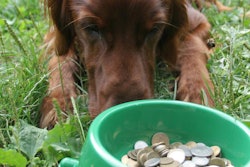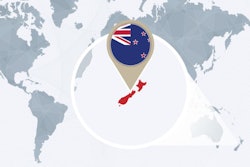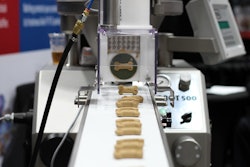
Rising energy bills are taking a heavy toll on pet food producers, driving them to increasingly look into cost-saving solutions, according to Tamás Racskó, secretary of the Federation of Hungarian Food Industries.
Pet food-producing companies using natural gas are seriously affected by increasing energy prices, Racskó said, explaining that all pet food companies currently face a strong rise in energy costs since the stock market price for European natural gas is four to five times higher compared to September 2021, despite a significant drop in late August 2022.
“Pet food producers indeed rely on affordable natural gas to maintain their production at the current value,” he said. “This is not the only cause of the rapid rise in their expenses because increasing energy prices, affecting gas and electricity bills, come along with increasing raw material prices, climbing transportation costs associated with higher fuel prices and surging labor costs.”
Racskó explained that even the prices of connected services, such as maintenance, machinery repair and packaging material, are rising sharply. Altogether, this results in an exponential rise in input prices. “The fact that there is a severe drought in Hungary adds to the problems – resulting in potential shortage and even higher prices of raw materials,” Racskó said.
Switching to alternative energy options
Given this situation, some pet food producers have considered switching to alternative power generation. Racskó said that some pet food companies took steps during the past decade to reduce their reliance on non-renewable energy sources, though it’s mainly the larger companies that now have strategies to significantly reduce their carbon footprints by modernizing their production.
“If we look at gas consumption, a lot of pet food-producing companies are making efforts to reduce the usage of natural gas. For example, [they] install solar panels to provide solar energy for heating or install geothermal energy systems,” Racskó said, adding that despite these efforts, the share of natural gas remains high.
“We must remember that the current pet food production lines are natural-gas-dependent. Like any other food processing lines that require heat treatment at such a large scale, there is simply no simple, fast solution to reduce the natural gas dependency,” he said.
The soaring gas prices have already spurred the demand for renewable solutions among producers, Racskó noted. On the other hand, he added that despite the industry’s enormous efforts, the transition to renewable sources might be limited due to the peculiarities of the industry’s production technology.
Before the current energy crisis, the European Union funded a Rural Development Program in 2021, aiming, among other things, to modernize feed and pet food-producing facilities, increase their sustainability and decrease carbon footprints.
“The program contained elements that enabled companies to reduce their vulnerability to natural gas [price fluctuations] by supporting their investments in renewable energy systems,” Racskó said. “Of course, not all the companies got subsidies to modernize their premises. They followed different strategies. Alongside the Rural Development Program, there were loan programs guaranteed by the state in order to modernize production, including starting to use renewable energy resources.”
Looking into a crystal ball
Racskó warned that should the energy prices stay at a high level, or climb even higher, logically, all other input costs would stay high. High production costs would impact the prices on the pet food market.
“Even though price determination is the retailers’ responsibility, the prices would surely have to follow the increasing costs. Those in a better position in terms of financial resources should invest in energy-savings projects to reduce their [energy] consumption. Besides, if they have resources, they should invest in renewable energy sources, especially solar panels, solar energy systems and geothermal energy sources,” he said.
All the energy efficiency improvements are absolutely timely and will undoubtedly be essential for the companies’ long-term survival, Racskó believes, claiming that the most efficient utilization of gas or electricity resources is a necessity in the current conditions.
“Still, we must emphasize that pet food production systems are rather inflexible. They are optimized to be supplied by natural gas,” Racskó said.
“Hungary is a significant pet food producer, providing goods for dozens of countries worldwide. Despite the exceptional circumstances, we hope that the situation is not going to result in decreasing quantity of pet food production, and we are not facing a significant drop in demand for our products,” he added.
















